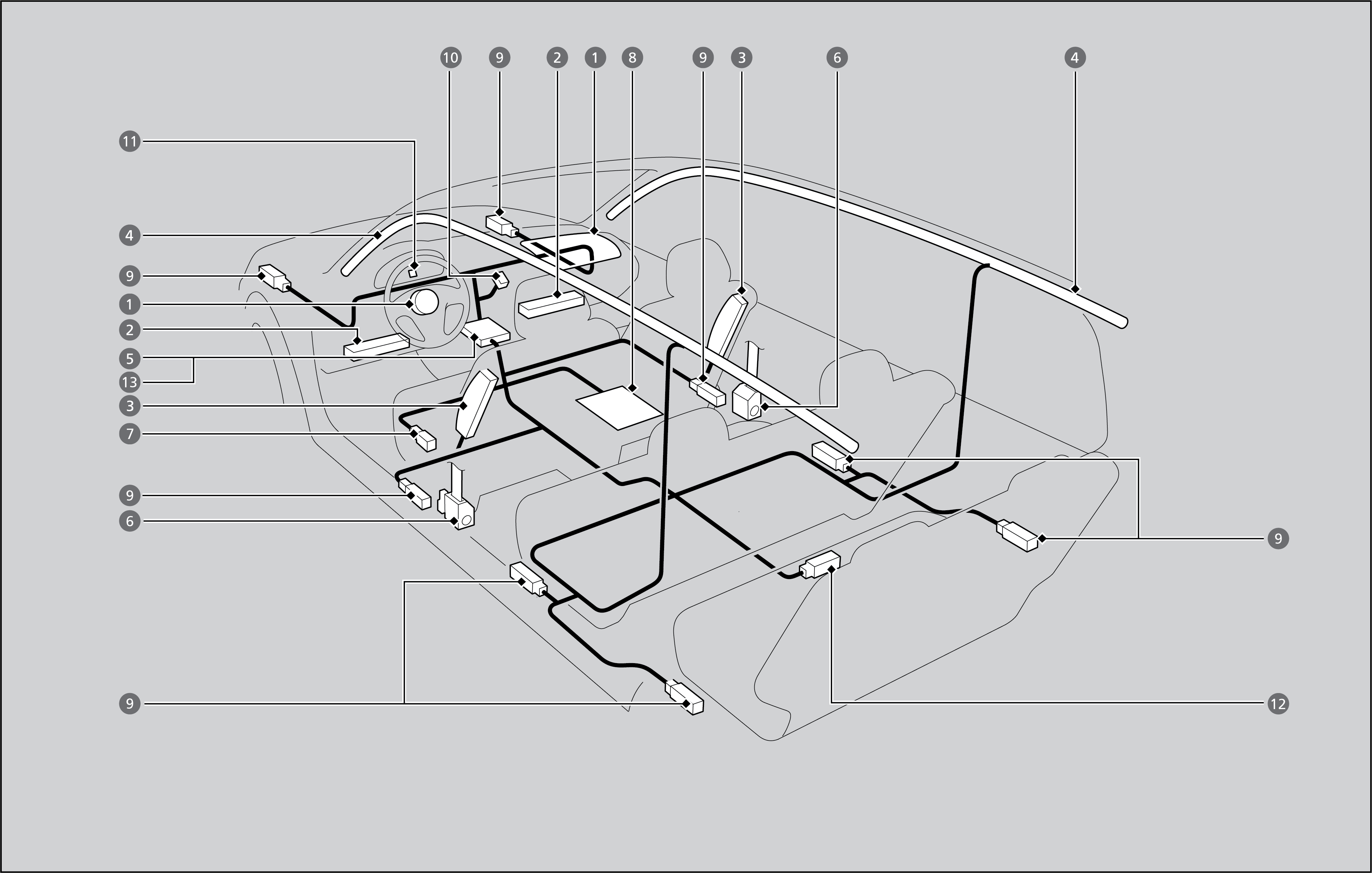
-
Two SRS (Supplemental Restraint System) front airbags. The driver’s airbag is stored in the center of the steering wheel; the front passenger’s airbag is stored in the dashboard. Both are marked SRS AIRBAG.
-
Two front knee airbags. The driver's knee airbag is stored under the steering column; the front passenger's knee airbag is stored under the glove box. Both are marked SRS AIRBAG.
-
Two side airbags, one for the driver and one for a front passenger. The airbags are stored in the outer edges of the seat-backs. Both are marked SIDE AIRBAG.
-
Two side curtain airbags, one for each side of the vehicle. The airbags are stored in the ceiling, above the side windows. The front and rear pillars are marked SIDE CURTAIN AIRBAG.
-
An electronic control unit that, when the vehicle is on, continually monitors information about the various impact sensors, seat and buckle sensors, rollover sensor, airbag activators, seat belt tensioners, and other vehicle information. During a crash event the unit can record such information.
-
Automatic front seat belt tensioners. The driver’s and front passenger’s seat belt buckles incorporate sensors that detect whether or not the belts are fastened.
-
A driver’s seat position sensor. This sensor determines the optimal force at which the airbag will deploy in a crash.
-
Weight sensors in the front passenger’s seat. The front passenger’s airbag will be turned off if the weight on the seat is about 65 lbs (29 kg) or less (the weight of an infant or small child).
- Impact sensors that can detect a moderate-to-severe front or side impact.
-
An indicator on the dashboard that alerts you that the front passenger’s front airbag has been turned off.
-
An indicator on the instrument panel that alerts you to a possible problem with the airbag system or seat belt tensioners.
- Safing sensor.
- A rollover sensor that can detect if your vehicle is about to roll over and signal the control unit to deploy both side curtain airbags.